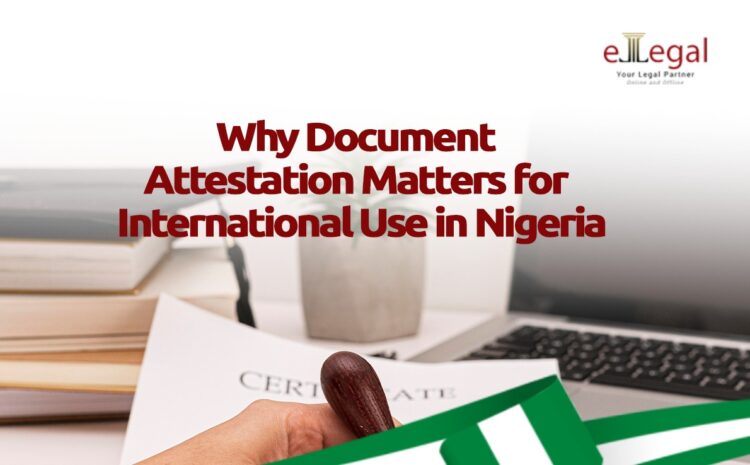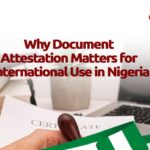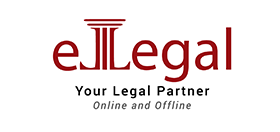
Introduction
In an increasingly interconnected world, the ability to use Nigerian-issued documents internationally, whether for academic, professional, legal, or commercial purposes, depends heavily on their proper attestation. The terms “attestation of documents,” “certification,” and “authentication” are often used interchangeably, but each refers to a critical legal process that validates the genuineness of a document for recognition in foreign jurisdictions.
Contrary to popular belief, a certified copy of a document simply confirms that a photocopy is a true representation of the original, not that the original document itself is authentic. For documents that will be used abroad, particularly those containing academic results or personal identification information, attestation provides a formal endorsement of authenticity by various Nigerian and foreign authorities.
This post explores the importance of document attestation in Nigeria, outlines the categories of documents that require it, explains the step-by-step process, and highlights the legal significance and common challenges associated with this crucial procedure.
Attestation of Documents Meaning
Document attestation is a multi-stage legal process whereby an official document is verified and endorsed by a series of government agencies and authorities, both local and foreign, to certify its authenticity for use outside Nigeria.
The process typically involves validation by:
- The issuing institution (e.g., universities, government registries, professional bodies)
- The Federal Ministry of Education (for academic documents)
- The Federal Ministry of Foreign Affairs (FMFA)
- The embassy or consulate of the destination country
Attestation transforms a locally recognized document into one that is internationally admissible.
Why Is Document Attestation Important?
Attestation serves several vital legal and procedural functions:
- Employment Abroad
Foreign employers require authenticated documents, especially academic and professional credentials before offering jobs to Nigerian applicants.
- Admission to International Institutions
Universities and colleges abroad mandate the submission of attested academic records for enrollment into undergraduate, postgraduate, and professional programs.
- Immigration and Residency Applications
Countries often demand attested personal and legal documents for immigration, permanent residency, or citizenship applications.
- Business Formation and Legal Transactions
For business registration, contract enforcement, or trade licensing abroad, commercial documents issued in Nigeria must be validated through attestation.
- Official Recognition in Foreign Legal Systems
Attestation ensures that your documents are legally recognized and enforceable in jurisdictions outside Nigeria.
Types of Documents That Require Attestation
- Academic and Educational Documents
These are often required for academic admission, employment, or migration purposes:
- WAEC/NECO/NABTEB certificates
- University diplomas and degrees
- Postgraduate certificates (MSc, MBA, PhD)
- Professional certifications (ICAN, COREN, etc.)
- Personal Documents
Used in personal legal matters or immigration processes:
- Attestation of Birth certificates
- Marriage certificates
- Police clearance reports
- Court affidavits
- Name change documents
- Business and Commercial Documents
Necessary for company registration, international trade, or foreign investment:
- Certificate of Incorporation (CAC)
- Memorandum and Articles of Association
- Board resolutions
- Power of Attorney
- Business licenses and permits
Step-by-Step Guide to Certificate Attestation in Nigeria
Step 1: Verification by the Issuing Authority
The process begins with verifying that the document is genuine:
- Academic certificates: Verified by the issuing school, polytechnic, or university
- Birth/marriage certificates: Verified by the National Population Commission (NPC) or registry
- Business documents: Verified by the Corporate Affairs Commission (CAC)
This preliminary step confirms that the document was legitimately issued.
Step 2: Attestation by the Federal Ministry of Education (For Academic Certificates Only)
Applicable only to educational documents.
Requirements:
- Original certificate
- A photocopy of the certificate
- Valid ID (e.g., National ID, Passport)
- Evidence of processing fee payment
Once verified, the Ministry of Education will stamp and sign the document to confirm its authenticity.
Step 3: Legalization by the Federal Ministry of Foreign Affairs (FMFA)
All verified documents (including those from the Ministry of Education) must be taken to the FMFA in Abuja.
Requirements:
- Verified original document
- Photocopy
- Payment receipt for attestation fees
The FMFA provides a final Nigerian government endorsement before international recognition.
Step 4: Embassy Attestation
If for instance the document attestation is for the UAE, the last step involves attestation by the embassy or consulate of the destination country.
General Requirements:
- Documents legalized by FMFA
- Photocopies of all attested documents
- Passport and visa pages (for individual use)
- Business registration documents (for corporate submissions)
Note: Each embassy has its unique requirements and fee structures. Always confirm before submission.
Legal Implications of Document Attestation
- Legal Recognition
Only attested documents are legally acceptable in foreign countries for official purposes. Without attestation, your documents may be rejected or deemed invalid.
- Fraud Prevention
Attestation acts as a safeguard against forged credentials and identity fraud, reinforcing the credibility of Nigerian-issued documents abroad.
- International Compliance
Most countries require attestation to comply with their immigration, academic, or business regulations.
- Apostille vs. Full Attestation
Nigeria is not a member of the Hague Apostille Convention. As a result, Nigerian documents must undergo full embassy attestation, unlike in Apostille-member countries where a simple apostille stamp is sufficient.
Common Challenges and Practical Solutions
- Delayed Processing
Long queues, bureaucratic inefficiencies, and limited capacity often lead to delays at ministries. Solution: Plan ahead and track your submissions regularly.
- Incomplete Documentation
Submitting incomplete or incorrect information will result in delays or rejections. Solution: Always double-check the requirements or seek professional help.
- Embassy Variations
Each embassy operates with distinct guidelines and fees. Solution: Research or consult the embassy’s website or office before submitting your documents.
- Cost of Attestation
The total cost varies based on the type and number of documents, plus embassy fees. Solution: Budget adequately and keep proof of all payments.
To avoid any or all of the above delays, we advise that you seek the services of a professional firm like ours to execute your document attestation services in Nigeria for you seamlessly without delay or regret.
Conclusion
Document attestation is not just a bureaucratic formality; it is an essential legal process for Nigerians seeking to study, work, or conduct business abroad. Ensuring your documents are properly attested increases your chances of seamless integration into international systems be it through academic admissions, employment, business formation, or legal recognition.
Whether you’re a student, a skilled professional, or a business owner, document attestation is your gateway to global opportunities.
Need Assistance?
Navigating the attestation process can be complex and time-consuming. For reliable guidance and professional support with certificate attestation, business documentation, or embassy submissions, consult our qualified legal or documentation service provider for a free consultation.





